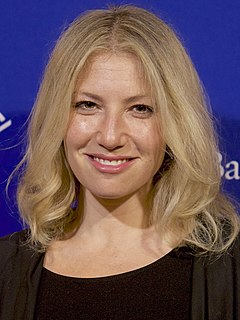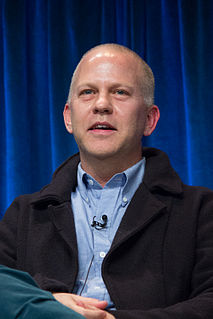A Quote by Ari Graynor
It is mind-boggling to me that there are so few movies about female friendship, considering women make up half the movie-going population.
Related Quotes
You can't do a movie without villains. You have to have something for the heroines or anti-heroines to be up against, and I wasn't going to contrive some monstrous female, but even if this were the most men-bashing movie ever made-let all us women get guns and kill men-it wouldn't even begin to make up for the 99% of all movies where the women are there to be caricatured as bimbos or to be skinned and decapitated. If men feel uncomfortable in the audience it is because they are identifying with the wrong character.
We need more female directors, we also need men to step up and identify with female characters and stories about women. We don't want to create a ghetto where women have to do movies about women. To assume stories about women need to be told by a woman isn't necessarily true, just as stories about men don't need a male director.
I've ended up as a filmmaker who really loves the movie part of movies. That time in my life was a big influence on the kind of movies that I ended up making. I always think I'm going to make a movie that's gritty and real, but then I make a movie that's like an opera. I fight it at first and then that's just the way it is.
If I have a male protagonist, it's a studio movie, and if it's a female protagonist, it's an indie movie. That's just how it is. It's not about the studios. It's about America and who goes to see movies. Women are interested in men and women, and men aren't interested in the woman's story. They just aren't.
People seem to think that my movies are so carefully coordinated and arranged - and in a lot of ways, they are - but every single time I make a movie, I feel that every director makes these choices. You make choices about your script, you make choices about your actors, and how you're going to stage it, and how you're going to shoot it, and what the costumes are going to be like, and in every single detail, you make that decision. And for me, what ends up happening is, I wind up surprised at the combination of all these ingredients. It never is anything like what I expected.

































